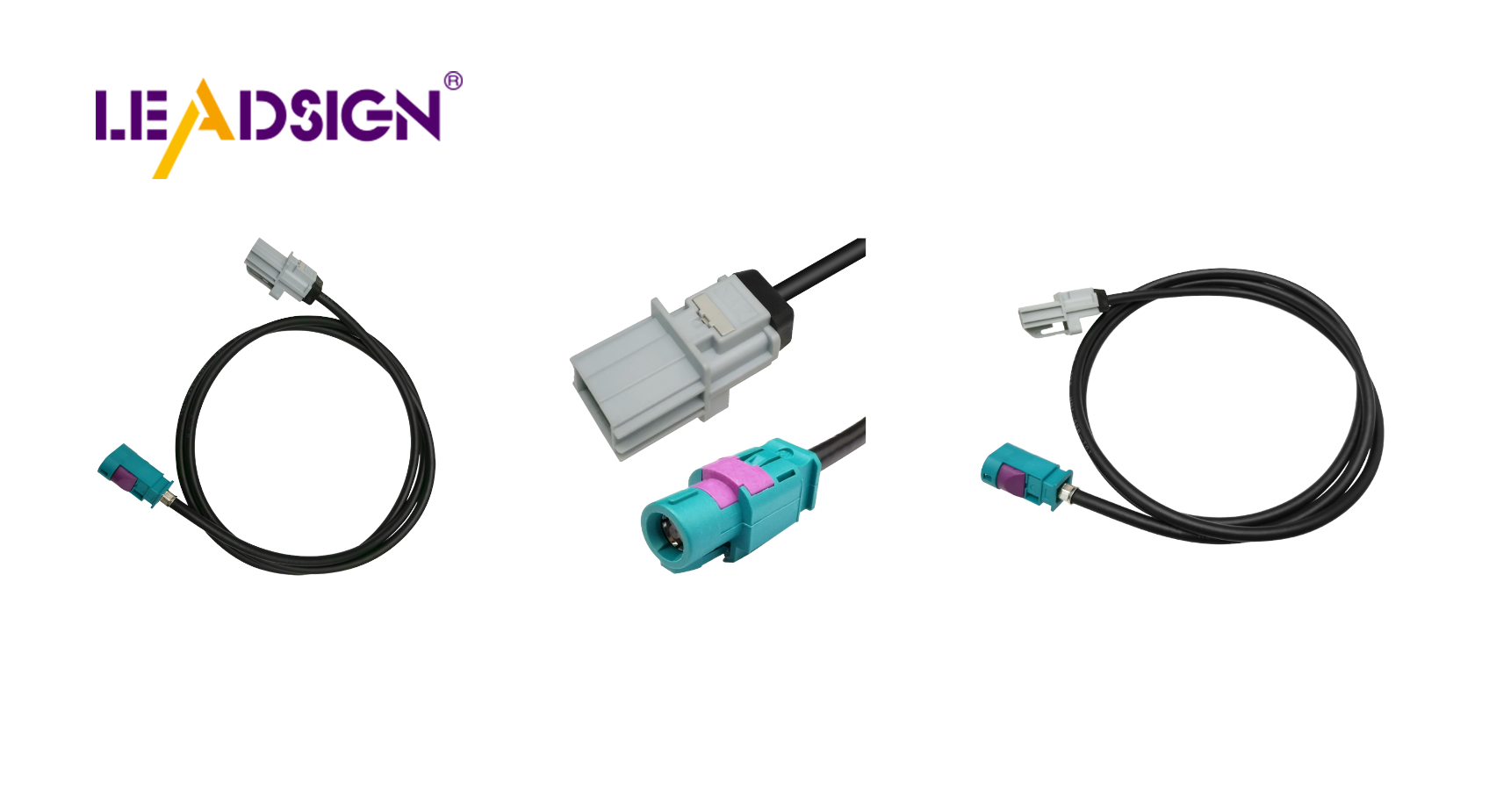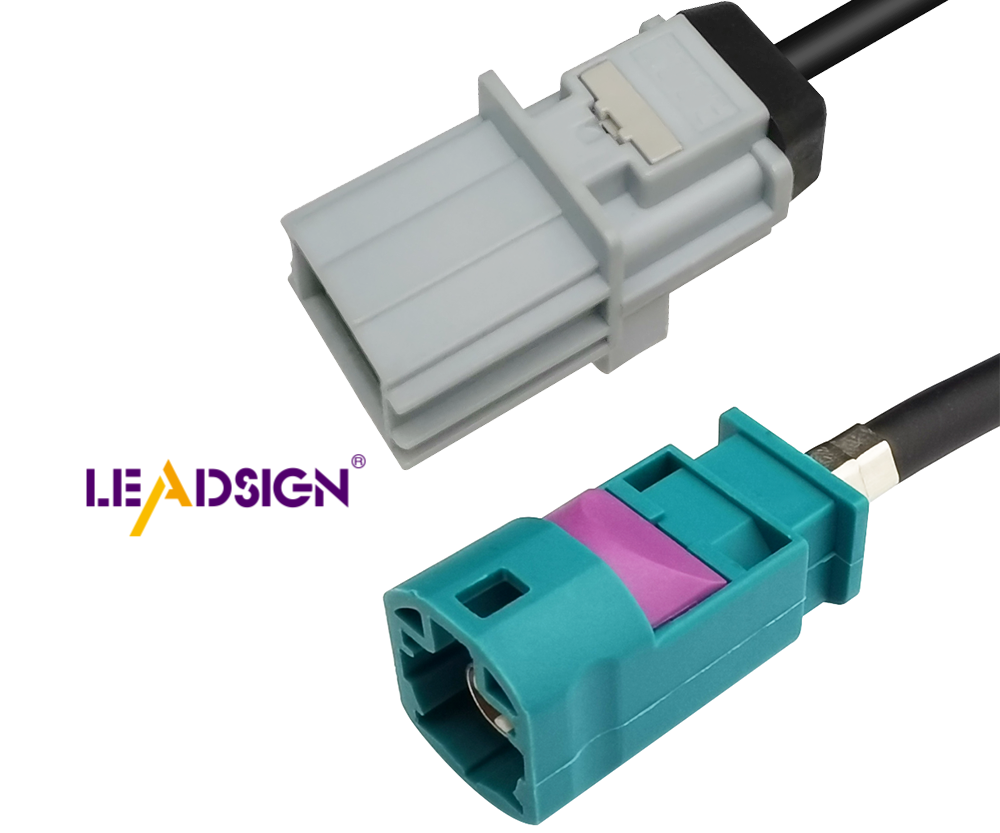Choosing Automotive Wire Connectors Types for Optimal Performance

Picking the right car wire connectors is important. These connectors help your car's electrical systems work well and safely. Bad connector choices can rust, especially with water or salt. This causes bad connections. It can harm the whole electrical system. So, it's key to choose the best connectors. Knowing about vehicle connectors helps your car's parts last longer and work better.
Key Takeaways
Choosing the right automotive wire connectors is crucial for ensuring your car's electrical systems function safely and efficiently.
Different types of connectors, such as blade, butt, and quick disconnects, serve specific purposes and should be selected based on their intended use.
Misconceptions about connectors, such as their interchangeability and size relevance, can lead to poor performance and safety issues.
Consider environmental factors like temperature, moisture, and vibration when selecting connectors to ensure durability and reliability.
Investing in quality connectors enhances your car's performance, increases safety, and can save you money on repairs and fuel efficiency.
Always match the connector's specifications with your car's electrical needs to prevent overheating and potential failures.
Consulting with experts or conducting thorough research can help you make informed decisions about the best connectors for your vehicle.
Understanding Vehicle Connectors
Definition and Function
Vehicle connectors are important for your car's electrical system. They link parts together, letting power and data move easily. These connectors have different shapes and sizes for specific jobs. For example, telematics connectors connect through the car's OBDII or CAN-BUS port. This helps with fast data sharing in the car.
Think of vehicle connectors like your car's nervous system. They send signals and power where needed. Without them, things like lights, sensors, and radios wouldn't work right. Good wiring and connections keep everything working well.
Importance in Vehicle Electrical Systems
Vehicle connectors are very important. They make sure your car’s electrical system works well. Connectors join the battery, alternator, starter, and sensors to other parts of the car. This is key for how well and safely your car runs.
Using good connectors stops problems like bad connections that cause failures. Automotive wiring connectors handle tough conditions to last long. They're used in things like navigation, radios, and charging electric cars.
Picking the right connectors makes your car safer and better performing. It also lowers the chance of electrical problems so your car runs smoothly.
Types of Vehicle Connectors

Knowing different connector types is important. Each type has a special job and helps your car's electrical system. Let's look at some common vehicle connectors.
Blade Connectors
Blade connectors are very popular. They have a flat metal piece that fits into a slot. These are easy to use and reliable in cars. Blade connectors make sure power moves well through the car's wires. They connect wires to things like fuses and relays.
Butt Connectors
Butt connectors join two wires together. They are shaped like tubes and connect wires end-to-end. Use them to make wires longer or fix broken ones. Put wire ends into each side, then crimp it tight. Butt connectors are strong for cars where there's shaking or movement.
Ring and Spade Terminals
Ring and spade terminals help connect wires to screws or bolts. Ring terminals fit over bolts, while spade terminals slide under screw heads. They're used in cars for battery connections or grounding points. These keep the car's electrical parts working well.
Quick Disconnects
Quick disconnects let you join and separate wires easily. You don't need tools to use them. They come in many shapes and sizes, so they're useful for different jobs. They're great when you often connect and disconnect parts, like during tests or repairs.
These connectors have a male part and a female part that snap together tightly. This makes sure they stay connected but can be pulled apart easily when needed. Quick disconnects are perfect for changing parts fast, like in car lights or sound systems.
Think about where you'll use quick disconnects before picking them. Strong ones handle tough conditions with lots of bumps and shakes. These are good for off-road cars or big machines. Regular ones work fine in easier places.
Specialty Connectors
Specialty connectors are made for special jobs in a car's electrical system. They help with things like sending data fast or spreading power around the car. You might see these in fancy car electronics, like music systems or telematics.
An example is the High-Speed Data (HSD) connector. It helps move data quickly, which is important for screens and music players in cars. HSD connectors keep signals clear, so they're great for video and sound.
When picking specialty connectors, think about what your job needs. Things like speed, shape, and purpose matter to keep connections safe and strong. Choosing the right specialty connectors makes your car's electrical system work better and safer.
Common Misconceptions About Vehicle Connectors
Misconception 1: All Connectors Are the Same
Not all vehicle connectors do the same job. Each one has a special role in your car's electrical system. For instance, Quick Disconnects let you easily join and separate wires. They're great for places where changes happen often, like during tests or fixes. These connectors can be insulated or not, giving you choices based on what you need. Knowing what each connector does helps you pick the right one for your car.
Misconception 2: Size Doesn't Matter
The size of connectors is very important. You might think any size works, but that's wrong. The size affects how well it handles electricity. A small connector might not carry enough current, causing it to overheat or fail. On the other hand, a big connector can be hard to use and wasteful. Always match the connector size with your car's needs for best performance and safety.
Misconception 3: Any Connector Can Be Used in Any Condition
You may think any connector works anywhere, but that's not true. Things like heat, water, and shaking affect how well they work. For example, connectors near engines must handle high heat and lots of movement. Picking the wrong one for tough spots can cause problems and dangers. Always think about where you'll use them to make sure they fit your car's conditions.
Things to Think About When Picking Car Connectors
Picking car connectors needs careful thought. Each thing you consider helps your car's electric parts work well and safely. Let's look at these important points.
Electric Needs
Electric needs are key when picking connectors. Match the connector's strength with your car's electric needs. This means looking at voltage and current levels. A weak connector might get too hot or break, causing danger. Always check details to make sure it fits your car’s system.
Safety Points
Safety is very important for connectors. New connectors have safety features to lower risks. For example, EV connectors stop shocks from happening. They have protections for safe use, even with high power. Pick connectors with strong safety features to keep the car and people safe.
Strength Features
Strength features show how well connectors handle stress. Think about how tough they are against heat, water, and shaking. Strong connectors work well in hard places. For example, near engines where it's hot and moves a lot. Pick ones that can handle what your car needs.
Environmental Conditions
When picking car wire connectors, think about the environment. These things can change how well your connectors work and last. Here are some important points:
Temperature: Hot weather makes connectors expand and shrink, causing loose links. Cold weather can make them break easily. Always pick connectors that handle your car's temperature range.
Moisture: Water and wetness can rust connectors, hurting their power flow. Find connectors that keep water out, especially if your car gets wet often.
Vibration: Cars shake from engines and roads. This shaking can loosen connectors over time. Choose ones made for lots of shaking to keep them tight.
Dust and Dirt: Tiny bits can get inside connectors, wearing them down. Dust-proof ones help keep connections clean and working well.
"Car electrical connectors are very important today. They connect the battery, alternator, starter, and sensors to other parts in the car.
Benefits of Picking the Right Car Connectors
Choosing good car connectors has many benefits. These help your car work better, stay safe, and save money.
Better Performance
Right connectors make your car work well. They move power and data smoothly. This keeps everything running fine. For example, using good connectors in your music system makes sound and video clearer. You get fewer breaks and better use.
More Safety
Safety gets better with right connectors. Good ones stop electrical problems. They lower the chance of short circuits or getting too hot. This keeps you and your car safe. For instance, some connectors have safety parts to stop them from coming apart by mistake. You can drive knowing your car is safe.
Saving Money
Buying good connectors saves money over time. They last longer and need fewer changes. This cuts down on fixing costs by stopping electrical troubles. Also, good connectors help your car use less fuel by making the electric parts work best. You pay less for repairs and gas.
"Buying quality connectors not only boosts performance but also keeps things safe and saves money.
Picking the right car wire connectors is very important. It helps your car work well and stay safe. Choose connectors that fit what your car needs. This makes sure the wires connect properly. Good connections stop rust and getting too hot, which can cause big problems.
Think about what your car needs. Look at things like weather and power needs. For more help, ask experts or look up more information.
"Buying good connectors makes your car work better, safer, and last longer.
See Also
Enhancing Automotive Performance Through HFM Connector Technology
Improving Data Flow in Vehicles with Advanced Connectors
Why HSD Connectors Are Essential for Automotive Applications
Benefits of Using HFM Connectors in Automotive Systems
Significance of Fakra Connectors in Modern Automotive Design

